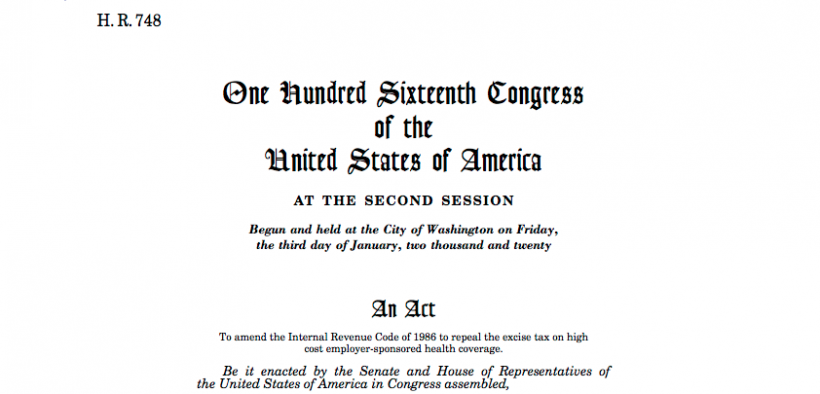How Will the CARES Act Impact Churches and Nonprofit Ministries?

The CARES Act made its way to the oval office Friday afternoon, where President Donald Trump signed the Covid-19 economic stimulus package, dispensing $2.2 trillion of relief to businesses, nonprofits, workers and families across the country.
As everyone scrambles to make sense of the massive relief package, churches and nonprofits are wondering how it will impact their work. Here’s a rundown of what we understand so far, as well as an update on how ministries can apply for the stimulus money—and a few things to consider before they do.
The biggest impact for religious nonprofits will come from the $350 billion dollars available in government-backed loans under the bill’s payroll protection program. The loan works as a hybrid grant—part or all of the loan can be forgiven when requirements are met. Churches and nonprofits that were operational before Feb. 15, 2020 and have fewer than 500 employees are eligible to apply for aid from the Small Business Association (SBA).
Applicants can receive up to 2.5 times their average monthly payroll costs in cash up to $10 million. In the eight weeks following the origination of the loan, whatever portion of the money is spent on covering payroll, mortgage interest, rent, utilities and other specific overhead costs will be forgiven, according to a guide put out by the U.S. Chamber of Commerce. Money spent outside the requirements will need to be repaid starting a year from the origination of the loan with an interest rate of no more than 4 percent over a maximum of 10 years.
The SBA has a current network of more than 800 lenders across the U.S., but Sen. Marco Rubio (R-Fla.) told pastors in a briefing hosted by the Florida Family Policy Council (FFPC) the program will be open to any licensed bank who wants to participate. The hope, he said, is that small businesses and nonprofits will be able to apply for the loans through their own banks. The SBA is set to release a list soon of participating lenders with a streamlined online loan application and instructions on how to apply.
But should Christian churches and ministries accept the government’s money? John Stemberger, president of the FFPC, told WORLD this is an opportunity for churches to receive much needed aid in the midst of a disaster—and that it’s in the government’s best interest to provide it. “This is not a permanent flow of money,” he said. “They’re not asking churches to become reliant. It’s one-time assistance in an unprecedented environment.” To leave religious nonprofits out of the proposal would have been discriminatory, he said.
Travis Wussow with the Southern Baptist Convention’s Ethics and Religious Liberty Commission told WORLD the bill as it stands has “no strings attached” in restricting religious organizations’ ability to carry out their mission—but that could change when the SBA issues final regulations. Churches may need to consider if they will accept the forgiveness aspect of the program, he said. “That is an area where there could be strings connected, as well as just broader entanglement issues that pastors need to be thinking about.”
Marvin Olasky, editor in chief of WORLD, told me churches may be fine to receive money through the loan program, but pastors and lawyers need to read the fine print. “We sing ‘Blessed be the tie that binds,’ but government ties have strangled some ministries,” he said.
Aside from the payroll protection loan program, the CARES Act also increased above-the-line deductions for taxpayers who give to nonprofits, encouraging more donations. But that change may be more word than deed. The deduction is limited to $300 and applies only to 2020, according to a summary published by the ECFA. “While there have been reports that this is a permanent provision in the law, we believe the wording of the Act does not support this conclusion,” the summary states.
The CARES Act also relaxes limitations on tax credits for major donations by increasing the gross adjusted income limit from 60 percent to 100 percent for individuals. This only applies to cash gifts given to a public charity. It also increases the percentage for corporations from 10 percent to 25 percent.
Related to payroll, employers will be able to defer their employer payroll taxes for wages paid during 2020. The first half will be due December 31, 2021 and the second half due December 31, 2022. A payroll tax credit of up to $5,000 per employee may also be available for businesses who have “fully or partially suspended operations due to orders from a governmental entity limiting commerce, travel, or group meetings” or who experience a year-over-year drop in revenue of at least 50 percent, according to ECFA.
The ECFA is hosting a free webinar Tues., Mar. 31 with tax experts who will break down how the CARES Act impact churches and nonprofits.



